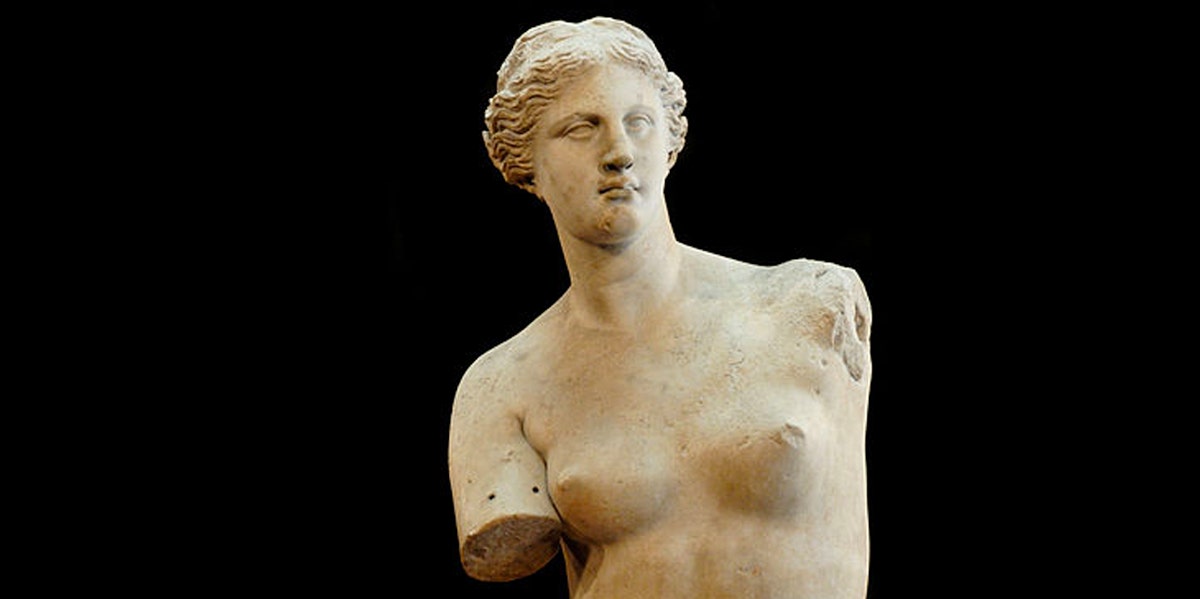The Critical Lesson We Can Learn From "The Perfect Woman" Of 1912
In 1912, the perfect woman was 5'7" and weighed 171 pounds. Here's what we can learn from her.
 Wikimedia Commons
Wikimedia Commons In 1912, the “Perfect Woman” was a pear-shaped 24-year-old Cornell student who weighed 171 pounds at 5'7 inches.
Elsie Rebecca Scheel was selected from a pool of 400 women as the "perfect woman" by Cornell University medical examiner, who described her as the "epitome of perfect health," according to a 1912 New York Times article.
The physical description of Ms. Scheel is a far cry from what our current culture epitomizes as the perfect woman or even the picture of perfect health. Today, Scheel’s body mass index would have been 27, placing her in the overweight category of 25 to 29.9.
A healthy weight range for a woman of her height and weight is only within 118-159 lbs. Scheel's name has been in the media as an example of an individual with a high BMI who still lived a long and healthy life.
While there is much debate today and in the early 1920s over what perfection really is, much can be learned from Scheel's life and her personal philosophy.
She credited achieving the honor of being named the perfect woman by adhering to "Sane living... I have eaten only what I wanted and when I wanted it." She rarely ate breakfast, didn’t like tea or coffee, but instead loved to eat a beefsteak.
Scheel was strong and athletic and enjoyed participating in sports, especially basketball. “I play a guard, where my weight helps,” she told one newspaper. Scheel was also interested in horticulture and automobiles and reportedly was an ardent suffragist.
She went on to become a practical nurse and married an architect who supervised the building of the New York Public Library. Her mother was a doctor, a rarity in the early 20th century, and Scheel's own daughter reportedly became a doctor as well.
Scheel received worldwide media attention as the perfect woman, with some comparing her to the Venus de Milo because of her curves.
Still, her praise and newfound fame as a specimen of perfection didn’t come without a price. Even in 1912, there was a negative media backlash against the young woman, with some poking fun at her size and weight, and others blatantly arguing that her weight and height “cannot be reconciled with the accepted ideal of female beauty.”
Some critics even harshly criticized her breasts as being too small. So, things weren’t so different in the early 1900s after all.
A December 2012 article in Men’s Health characterized the perfect woman as having large breasts, narrow hips, and long legs.
Still, none of this harsh criticism seemed to affect Scheel, whose strengths were rooted in her courage and confidence. She allegedly stated that she “did not know what fear is” and believed that women would be happier if they could get over their fear of things.
Scheel lived a long life, despite having that out-of-sorts BMI. A New York Times article reported Scheel died in Florida in 1979, three days before her 91st birthday, shortly after undergoing surgery for a perforated bowel.
Her family credited her long life with her attitude and healthy habits. Her granddaughter, who told the New York Times that Scheel never took aspirin or a Tylenol, doesn’t remember her grandmother ever being sick or being hospitalized until the time she died.
Rather, she was lively and indulged in her hobbies of stamp collecting and writing for a Florida newspaper, and even driving late in her life.
This leads one to wonder, maybe Scheel really was the perfect woman?
It depends on how you define perfect — but a strong, confident, educated, service-oriented woman who led a long, happy and healthy life complete with the love of family sounds pretty perfect to me.
The lesson we can learn from Scheel’s perfection is simple: be confident in who you are, take care of your body and mind and live and love your life.
Diana Marie Collins is a lawyer, writer, food blogger, and educator. Follow her on Twitter for more.
